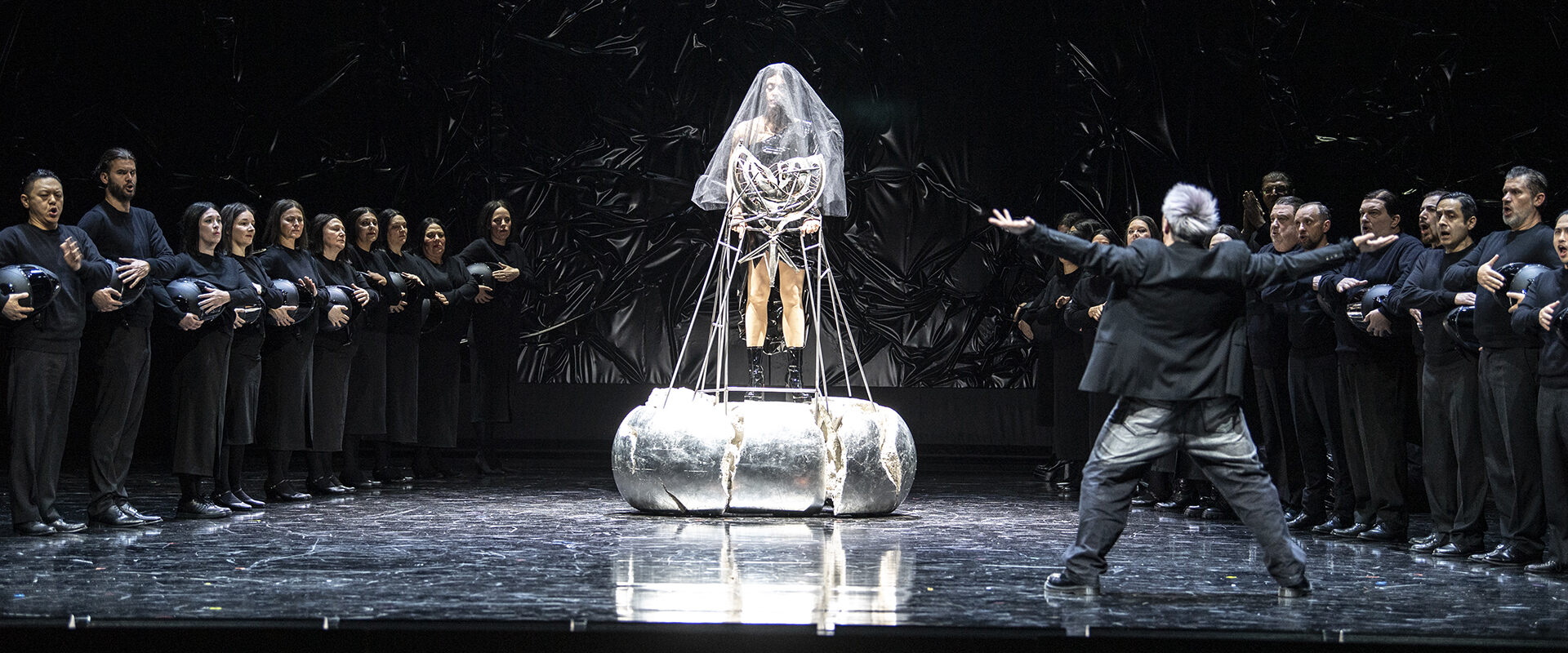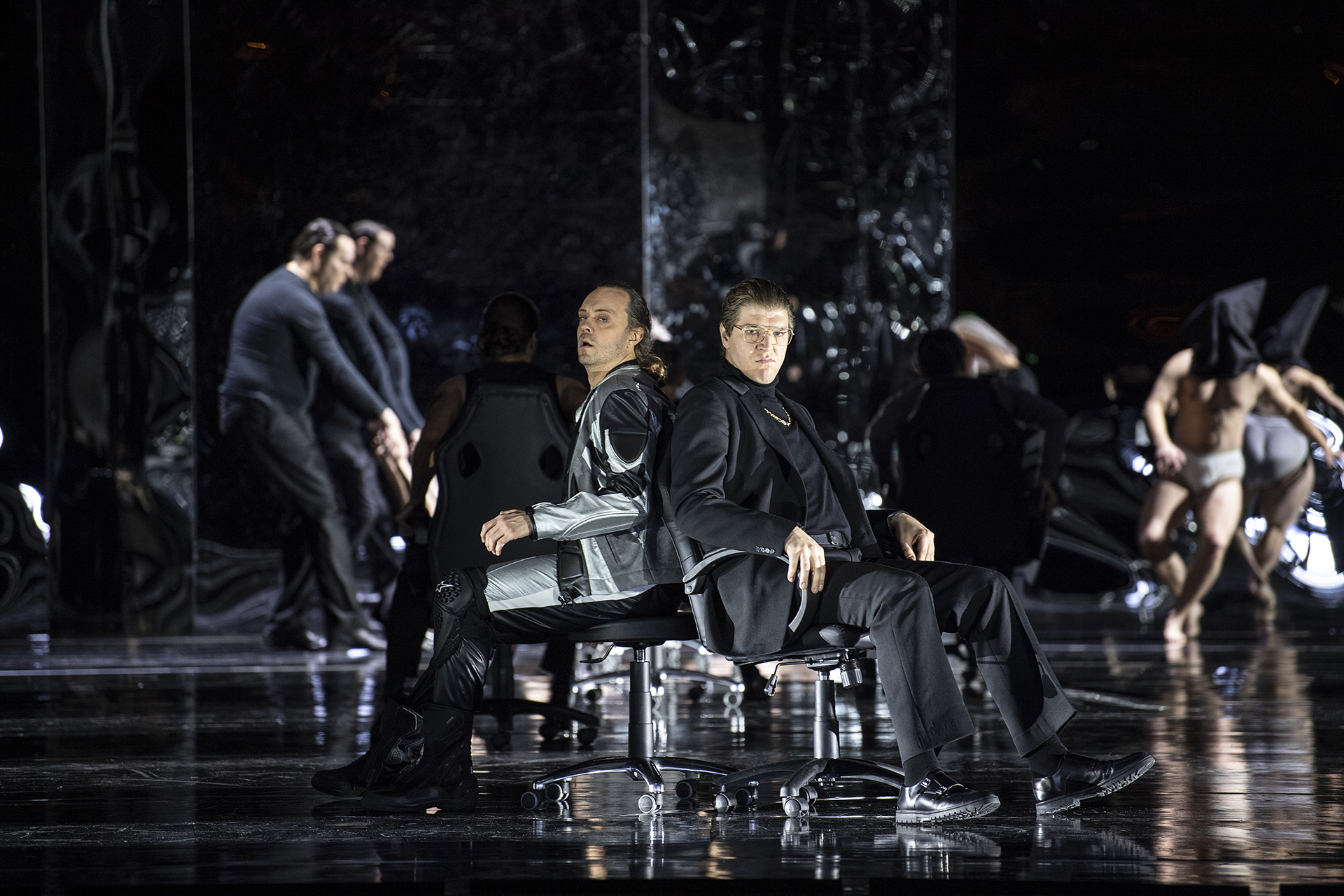 Success of Polish director Ewelina Marciniak at Swiss opera theatre
Success of Polish director Ewelina Marciniak at Swiss opera theatre
Curse, power, desire — even when intertwined with noble feelings — they must submit to the consequences of earlier decisions. Richard Wagner’s “The Ring of the Nibelung” is a challenge both for the theatre and for the creatives, which is why the success of the team (almost entirely Polish) led by director Ewelina Marciniak in Bern, Switzerland, is so significant.
“Der Ring des Nibelungen” is a saga written and composed by Richard Wagner in the second half of the 19th century — a time of dynamic geopolitical, mental, and technical changes. Germany unites into one country under Bismarck’s leadership. In Italy, the unification is a process resulting from the social movement. Karl Marx publishes “The Communist Manifesto,” and the Industrial Revolution accelerates in rhythm with the increasingly far-reaching steam locomotives. Drawing on well-known German myths and legends, Wagner constructs his multi-threaded narrative, commenting on his contemporary reality.
The opera audiences will identify emotions and topics they can relate to nowadays. Alberich, a dwarf ridiculed by the daughters of the Rhine, renounces love and steals the gold hidden in the river, crafting the titular ring from it. Whoever possesses the ring will gain extraordinary powers, but at the same time, they will be cursed. The ring becomes the object of desire for gods, giants, and dwarfs, which leads to the downfall of each of these races. Only the fearless hero of untainted purity, Siegfried (a Nietzschean new man?), can break the curse cast by Alberich. However, even he, unaware of the unfulfilled promises, greed, and the coveted power surrounding him, ends up betrayed and murdered. What happens to the ring?
This question is answered by director Ewelina Marciniak, who has staged the entire cycle of “Der Ring des Nibelungen” for Bühnen Bern in Switzerland. The successive parts — “Das Rheingold” (premiere in November 2021), “Die Walküre” (March 2023), “Siegfried” (April 2024) — lead to the grand finale, “Götterdämmerung,” which was performed on March 30, 2025, at the Bern state theatre. Marciniak sets the lovers, Siegfried and Brunnhilde, on an island made of books, in line with the motto from the program book “Women Who Read Are Dangerous.” By imparting her knowledge, the Valkyrie is to receive the eternal love of the hero, and the cursed ring symbolizes this vow. In the dark palace of the human Gibichung clan, Hagen resides, weaving his intrigue to recover the ring and avenge his father Alberich.
The minimalist set created by Mirek Kaczmarek is brought to life by lighting (Bernhard Bieri), sometimes resembling a cave, sometimes a ballroom, and sometimes the foamy waters of the Rhine. The director introduces dancers, the narrators of the story, who sometimes act as alter egos of the characters, emphasizing the full range of emotions ranging from love to anger, from infatuation to betrayal and the desire for revenge — leading to the fall of the heroes fall. The ring passes from hand to hand. In Wagner’s finale, it is supposed to sink to the bottom of the Rhine, and the gods and heroes are to perish in the fire from the funeral pyre of Brunnhilde and Siegfried. However, Ewelina Marciniak changes the ending. The heroes indeed perish, but the ring ends up in the hand of Gutrune, a woman who until now had been a puppet in a male-dominated world. Is this a new hope for a changing world? Or does the ring continue its cursed dance? These are questions the audience must answer for themselves.
Ewelina Marciniak was invited to Bern by the director of the theatre, Florian Scholz. What was initially planned as a collaboration only for the first part of the tetralogy extended into the entire cycle. Marciniak comes from the theatre world and had no prior experience with opera stage. Despite this, her interpretation was very well received by the international critical press, particularly in Germany. The director has been acclaimed both for her artistic concept and — together with conductor Nicholas Carter — respecting the original music score. Egbert Tholl of “Süddeutsche Zeitung” positively evaluates “Das Rheingold,” highlighting the dynamic and thoughtful approach to Wagner’s work, while Jörn Florian Fuchs of “BR-Klassik” draws attention to the intellectual depth and originality of “Die Walküre.”
Polish members of the creative team invited by Marciniak have also been highly praised, including Julia Kornacka (costume designer for all parts of “Der Ring des Nibelungen”) and set designer Mirek Kaczmarek. As Marciniak herself says, she encountered a great deal of trust from the singers and a warm reception for her concept from the very beginning. She also appreciates her creative collaboration with Carter, who was a supportive partner, not a teacher, for the debuting opera director.
“Götterdämmerung” by Richard Wagner, Bühnen Bern, Switzerland
Premiere: March 30, 2025
Upcoming performances: April 5, 13, 16; May 2, 11, 17; June 1, 2025
Creatives:
Musical Director: Nicholas Carter
Director: Ewelina Marciniak
Set Design: Mirek Kaczmarek
Costumes: Julia Kornacka
Choreography: Mikołaj Karczewski
Lighting: Bernhard Bieri
Chorus Master: Zslot Czetner
Dramaturgy: Miron Hakenbeck
Cast:
Siegfried: James Kee
Gunther: Jonathan McGovern
Hagen: Christian Valle
Alberich: Lawson Anderson
Brunnhilde: Claude Eichenberger
Gutrune/III Norn: Cassandra Wright
Waltraute/I Norn: Susanne Gritschneder
II Norn/Flosshilde: Marcela Rahal
Woglinde: Patricia Westley
Wellgunde: Evgenia Asanova
Dancers:
Jess Gardolin, Chantal Kramer, Rafał Matusiak, Dario Rigaglia, Bastian Louis




